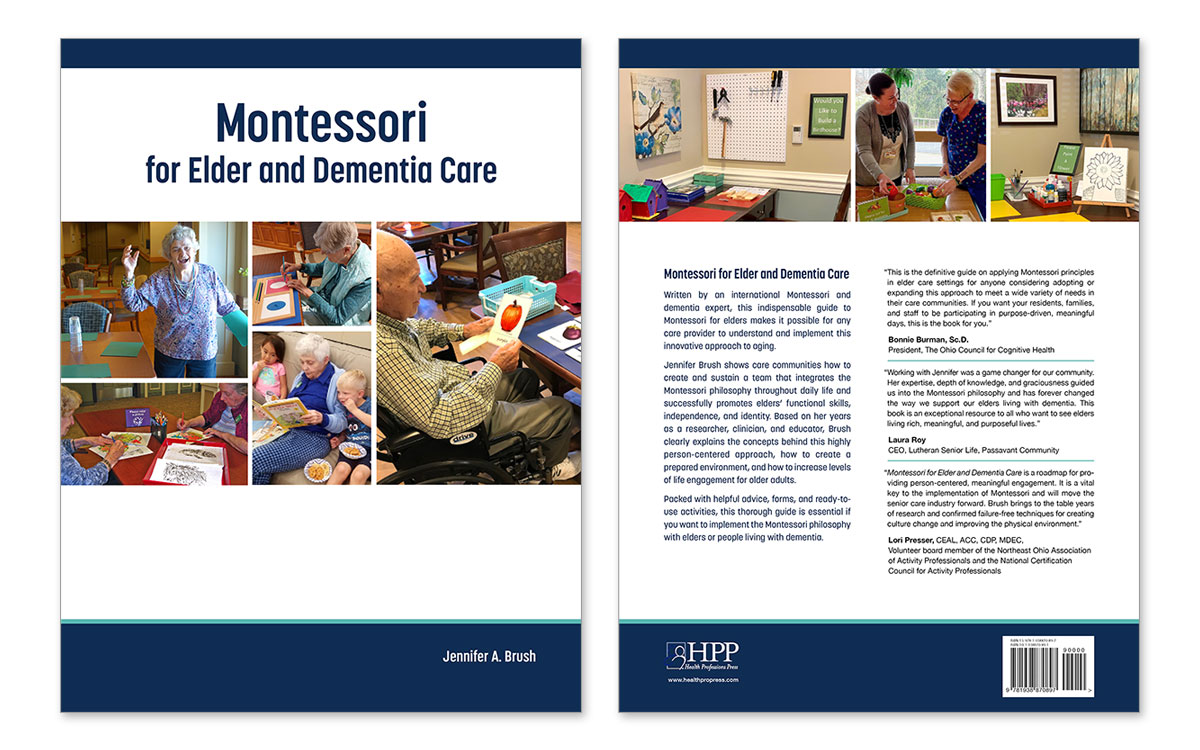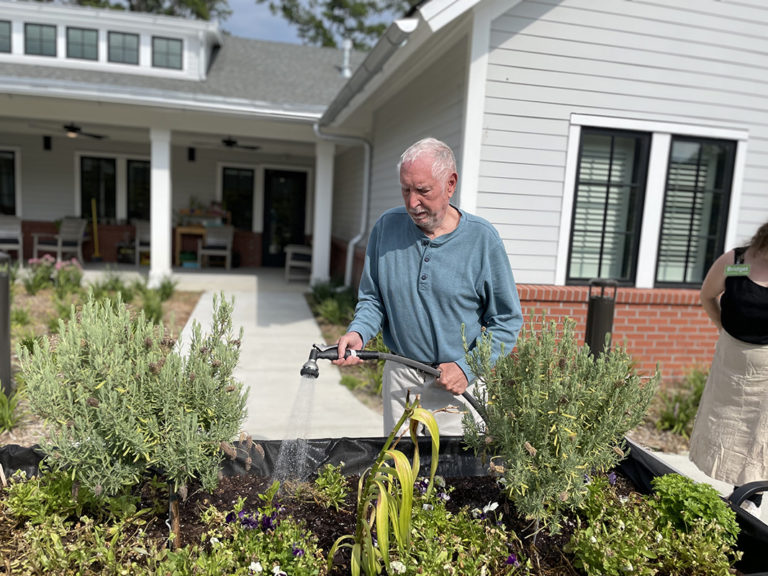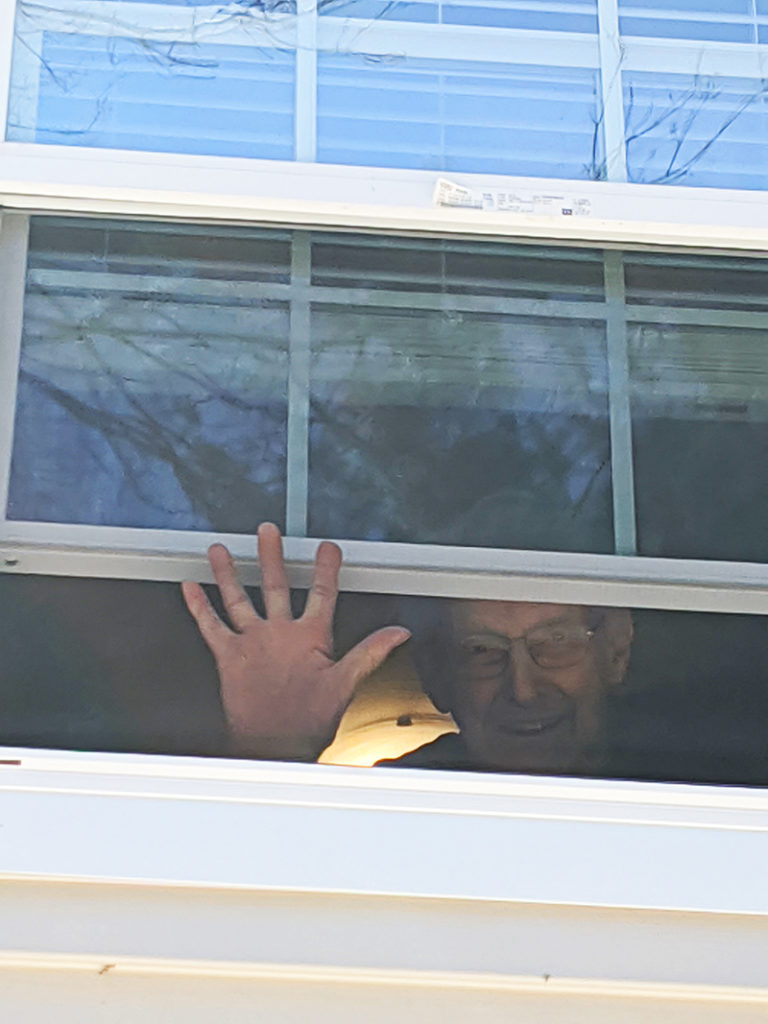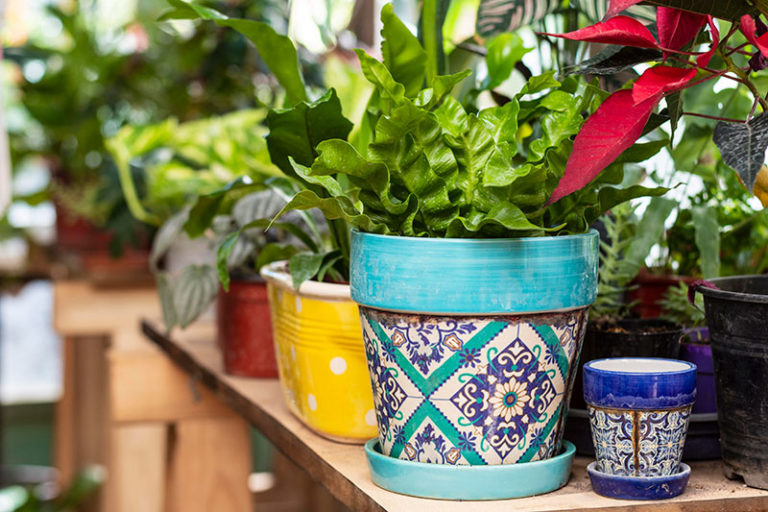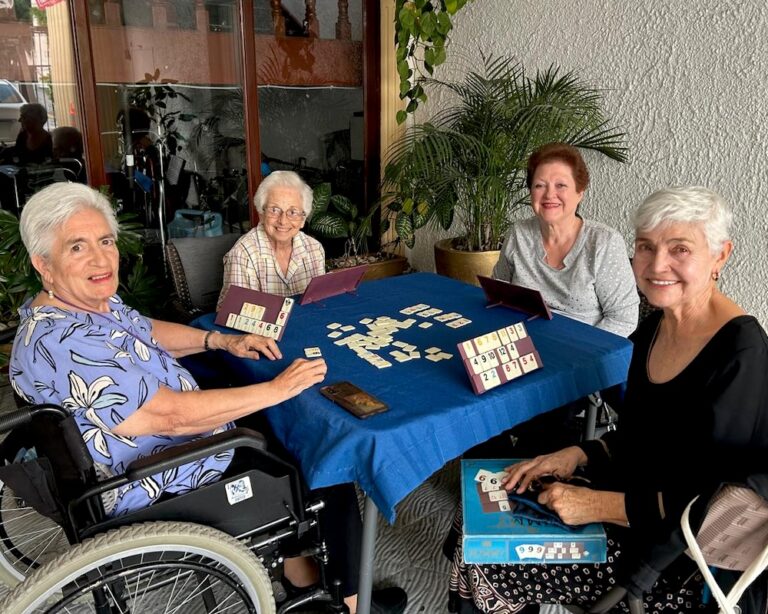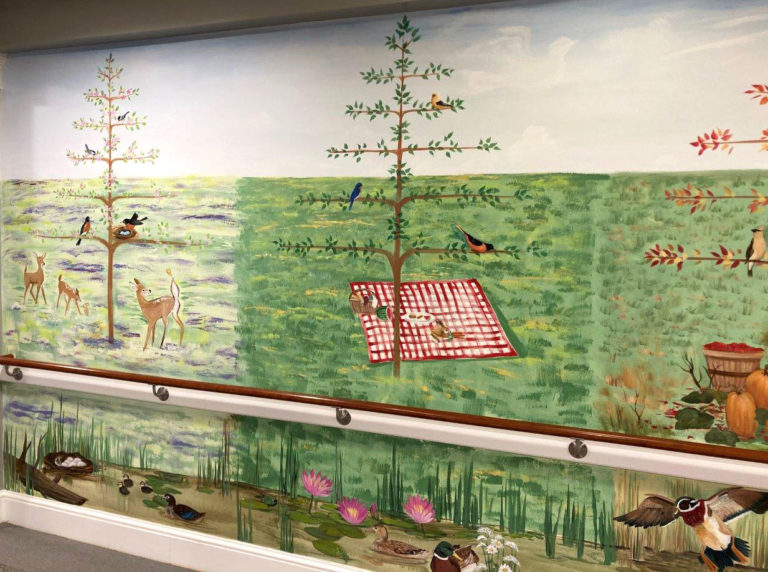What is Montessori for Dementia?
I am asked a lot to define Montessori for dementia. Many people have heard of Montessori schools for children, but are not clear how it applies to adults. Montessori philosophy, based on the principles of free choice and purposeful activity, has historically been focused on children’s education. However, its essential principles and practices are increasingly seen as critical to enhancing the lives of the older adults in our care. Central to both the Montessori philosophy and person-centered care are the core values of respect for the individual, the importance of knowing the person deeply, seeking and honoring the elder’s preferences over all aspects of his or her daily life, and creating a supportive environment that allows for continued participation in familiar and preferred activities, inside and outside.
In a Montessori community for elders, persons with a wide range of abilities work both individually and collaboratively on an array of activities from which they are free to choose. Elders have freedom to move within the community and to engage in household roles and responsibilities, with guidance as needed by trained staff. The focus is on the well-being of the whole person, including physical, spiritual, social, mental, and emotional needs. Communities offer occasions for new learning, religious practices, meditation, art, music, exercise, and so forth. In addition, there are opportunities for interaction with children, friends, family, and groups outside of the care community.
What follows is a brief description of each of the essential features of Montessori for dementia communities.
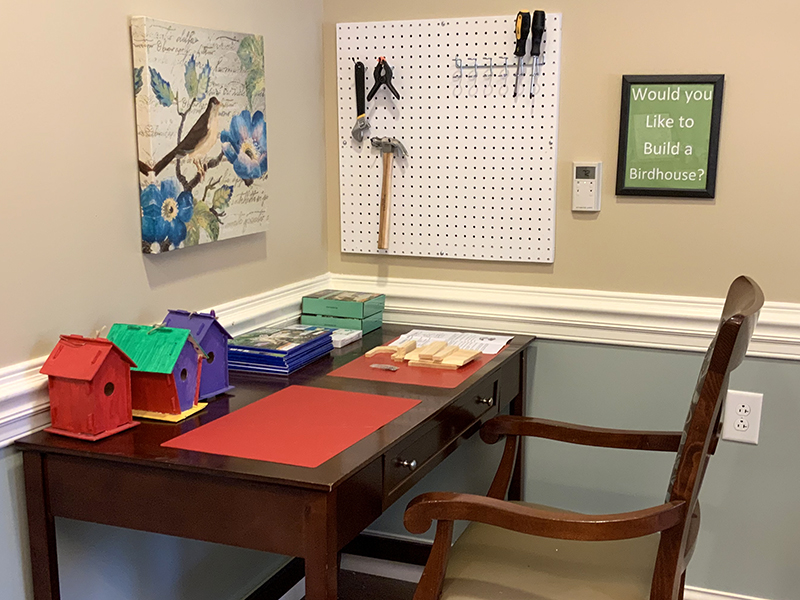 © 2020 Brush Development
© 2020 Brush Development
Prepared Environment
The prepared environment is designed to facilitate maximum independence and exploration by all members of the community. Hands-on adult activities and materials are accessible to elders 24 hours a day. This allows elders to feel ownership of their space, encouraging participation in care of the community.
Freedom of Movement
Elders choose where to sit and what to work on, with guidance or assistance as needed from trained care partners. They are encouraged to move about the environment rather than remaining seated or in one place all day. This freedom of movement helps elders to maintain balance, fine and gross motor skills, and overall healthy functioning of the body’s systems.
Hands-On Activity
Elders work with both specially designed materials and everyday household items. Activities are hands-on and often involve movement and sensory stimulation. Each activity has multiple purposes. These may include strengthening gross or fine motor skills, maintaining hand-eye coordination, developing sustained attention on a task, or providing sensory stimulation. The purpose of an activity may also be artistic expression, enjoyment, or the satisfaction that comes from making a meaningful contribution to the community.
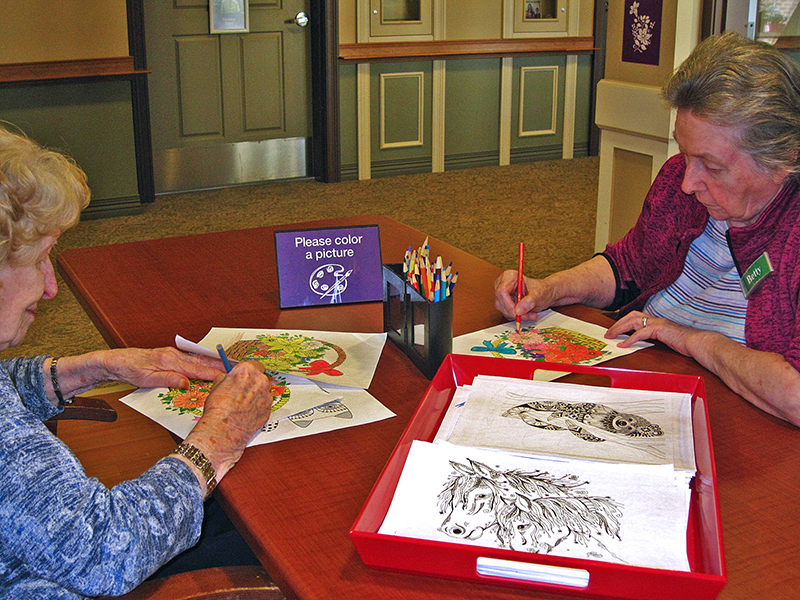
Intrinsic Motivation
Humans are born with an intrinsic desire to explore and learn. Rather than focusing on keeping elders “busy,” the prepared environment provides opportunities for choice, independence, and meaningful engagement. When elders are free to follow their interests and meet their own needs, they feel fulfilled rather than bored.
Concentration
With regard to elders, we think of concentration as joyful engagement in work that one finds satisfying. Care partners do not interrupt elders’ concentration when they are engaged in meaningful activity and only offer assistance when it is needed.
Independence
Humans are naturally driven toward achieving independence. Therefore, a Montessori prepared environment is set up to facilitate maximum independence for elders. Care partners invite them to engage in daily tasks (either independently or in partnership) rather than completing these tasks for them.
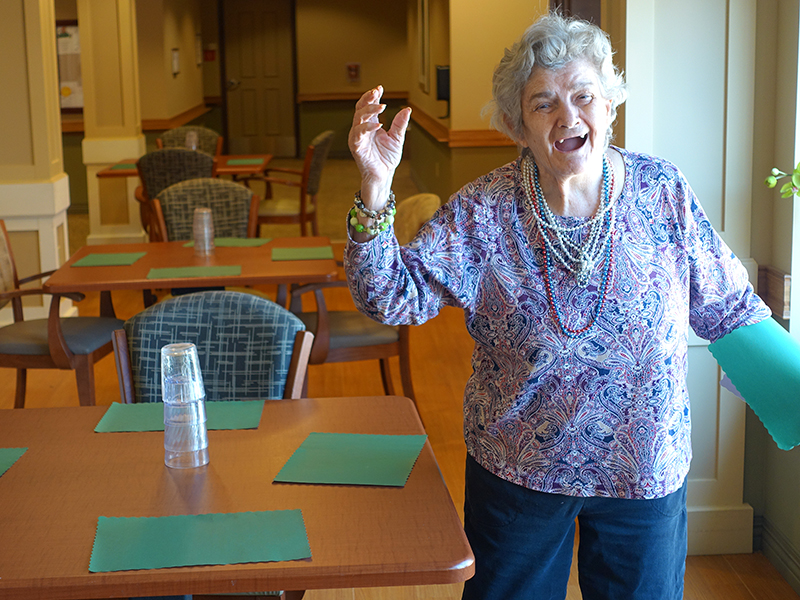
Mixed Abilities of Individuals
Elders of different abilities work together, form friendships, and help each other in a supportive community. Peer collaboration is encouraged; elders share their strengths with others who need more support in those areas. Rather than staff taking over all leadership roles, elders have opportunities to use their leadership skills in areas of strength and interest.
Individualized Engagement
Every elder living in a Montessori community has an individualized plan that is created as a result of assessment of and collaboration with the elder and his or her family (when applicable). This individualized plan is communicated to all staff so that the community as a whole works together to support the elder in meaningful life engagement.
Observation
Observation is an integral part of the Montessori philosophy. We recommend routine observations of all elders in the community, both when they are on their own and when interacting with others. Observation enables us to gather information that will help us adjust elders’ individualized care plans to better meet their needs.
Grace and Courtesy
Social skills such as offering and responding to greetings remain relatively intact through aging and dementia, so elders enjoy opportunities to welcome guests, invite friends to join them during activities, help others, and to assist with caring for the community. In a care community, it is the role of the staff to model grace and courtesy at all times and to assist elders who need support with these skills.
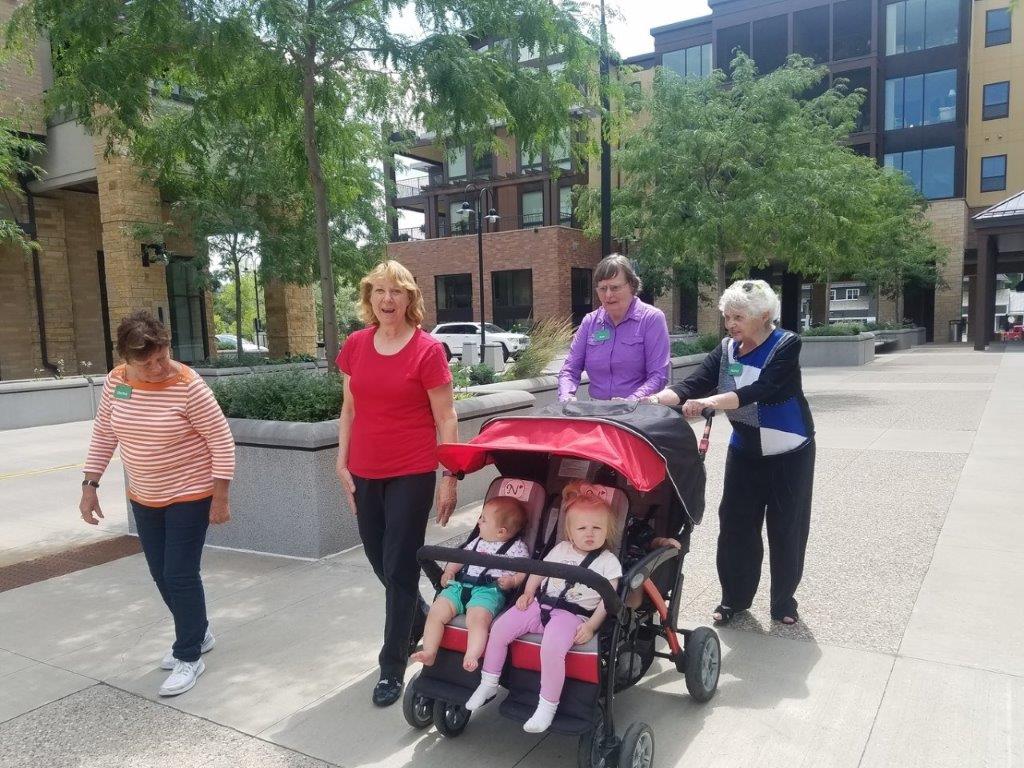 © 2020 Brush Development
© 2020 Brush Development
The Montessori Triad
In education, the Montessori Triad refers to the interaction of the environment, the child, and the teaching. In the care setting, the care partners serve as guides and facilitators, connecting elders with opportunities for purposeful engagement in a prepared environment to support intellectual, physical, emotional, and social well-being. In the care setting, therefore, the Montessori Triad is the dynamic interaction among the elder, the Montessori-trained care partner, and the prepared environment.
Older adults and people living with dementia have the same needs as everyone else—to feel valued and respected. In the absence of a cure for dementia, socialization and engagement in purposeful activities is a powerful treatment for the symptoms associated with dementia. People with dementia still need to feel wanted, learn new information, have relationships with friends and family, and contribute to the community. A Montessori community provides a safe, engaging, and meaningful environment for elders to live a purposeful and rewarding life.
© 2020 Jennifer Brush
This article has been adapted with permission from Jennifer Brush, Montessori for Elder and Dementia Care (Baltimore: Health Professions Press, 2020).

